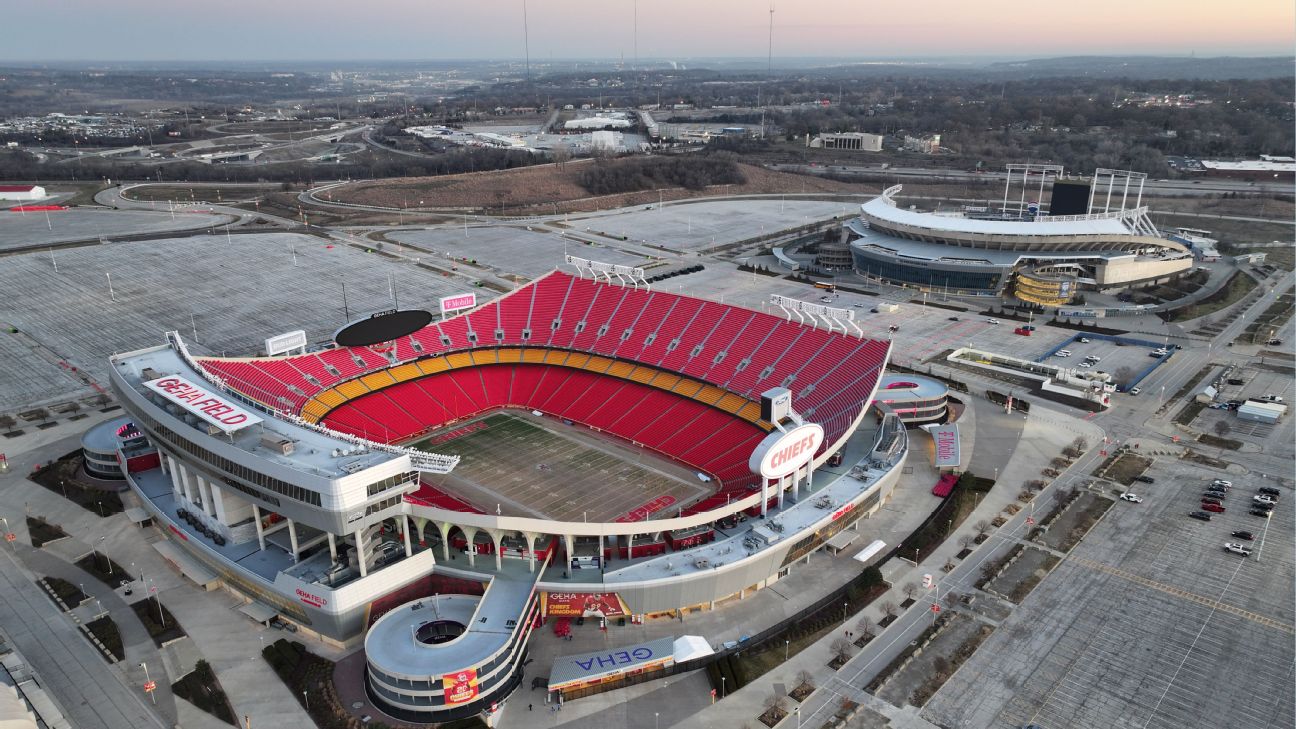
Posted on May 01


Posted on May 01

u/alex •

u/alex •
KANSAS CITY, KS -- The fate of new stadiums for the Kansas City Chiefs and the Kansas City Royals hangs in the balance as lawmakers in Kansas consider a bill to finance the projects. The proposed legislation suggests issuing at least $1 billion in bonds to cover the entire cost of building each stadium, with the debt being paid off over a span of 30 years using tax revenues generated in the area.
However, concerns surrounding corporate welfare and the timing of the proposal have led GOP leaders to refrain from bringing it up for a vote before the legislative session ended. The bill may be revisited during a special session called by Democratic Governor Laura Kelly, who is expected to veto the last tax package approved by lawmakers.
Supporters of the proposed bill argue that it would provide an incentive for both the Chiefs and the Royals to remain in the Kansas City area. They believe that investing in new stadiums will not only boost the local economy but also enhance the city's reputation as a sports destination. On the other hand, critics view the bill as taxpayers subsidizing wealthy sports teams and argue that the funds could be better allocated for other pressing needs within the community.
Adding to the complexity of the situation is the fact that the current lease on the teams' complex extends until 2031. This raises questions about the urgency of financing new stadiums at this time and whether it aligns with the long-term plans of the Chiefs and the Royals.
While the bill has faced opposition, some lawmakers and civic leaders believe that securing new stadiums would have significant benefits for the Kansas City community. They argue that modern, state-of-the-art facilities could attract major sporting events, boost tourism, and create jobs, contributing to the overall growth and vibrancy of the region.
The debate surrounding the financing of sports stadiums often raises questions about the balance between corporate welfare and the public interest. Critics argue that using taxpayer dollars to fund private sports franchises is an unjust allocation of resources, especially when there are pressing needs in areas such as education, infrastructure, and social services. Proponents, however, contend that investing in sports facilities can have long-term economic benefits by attracting visitors, generating revenue, and bolstering civic pride.
As discussions continue and lawmakers deliberate the future of the proposed bill, it remains to be seen whether a consensus can be reached. The decision will have far-reaching implications for Kansas City, its residents, and the future of professional sports in the region.
KANSAS CITY, KS -- The fate of new stadiums for the Kansas City Chiefs and the Kansas City Royals hangs in the balance as lawmakers in Kansas consider a bill to finance the projects. The proposed legislation suggests issuing at least $1 billion in bonds to cover the entire cost of building each stadium, with the debt being paid off over a span of 30 years using tax revenues generated in the area.
However, concerns surrounding corporate welfare and the timing of the proposal have led GOP leaders to refrain from bringing it up for a vote before the legislative session ended. The bill may be revisited during a special session called by Democratic Governor Laura Kelly, who is expected to veto the last tax package approved by lawmakers.
Supporters of the proposed bill argue that it would provide an incentive for both the Chiefs and the Royals to remain in the Kansas City area. They believe that investing in new stadiums will not only boost the local economy but also enhance the city's reputation as a sports destination. On the other hand, critics view the bill as taxpayers subsidizing wealthy sports teams and argue that the funds could be better allocated for other pressing needs within the community.
Adding to the complexity of the situation is the fact that the current lease on the teams' complex extends until 2031. This raises questions about the urgency of financing new stadiums at this time and whether it aligns with the long-term plans of the Chiefs and the Royals.
While the bill has faced opposition, some lawmakers and civic leaders believe that securing new stadiums would have significant benefits for the Kansas City community. They argue that modern, state-of-the-art facilities could attract major sporting events, boost tourism, and create jobs, contributing to the overall growth and vibrancy of the region.
The debate surrounding the financing of sports stadiums often raises questions about the balance between corporate welfare and the public interest. Critics argue that using taxpayer dollars to fund private sports franchises is an unjust allocation of resources, especially when there are pressing needs in areas such as education, infrastructure, and social services. Proponents, however, contend that investing in sports facilities can have long-term economic benefits by attracting visitors, generating revenue, and bolstering civic pride.
As discussions continue and lawmakers deliberate the future of the proposed bill, it remains to be seen whether a consensus can be reached. The decision will have far-reaching implications for Kansas City, its residents, and the future of professional sports in the region.